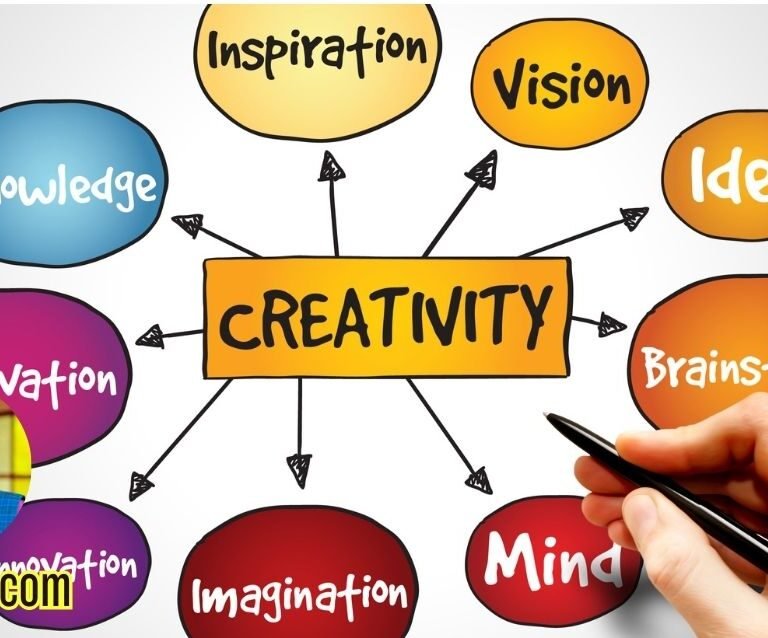The Power of Your Narrative
Every individual possesses a narrative that weaves the tapestry of their life experiences, choices, and aspirations. This personal narrative, often referred to as the “story of self,” has profound implications for how we view ourselves and our relationships with the world around us. It is through our stories that we define our identities and establish a sense of belonging. When life presents challenges, the manner in which we interpret and articulate these moments can significantly influence our resilience and capacity for growth.
Understanding the power of our narrative allows us to shift our perspective and reclaim our agency. When faced with adversity, many individuals struggle, feeling like mere victims of circumstance. However, by recognizing the role of narrative in our experiences, we can reframe our challenges and view them not as setbacks but as opportunities for development. The ability to rewrite our narratives empowers us to reinterpret our past and reshape our future, embodying the role of a protagonist rather than a passive participant.
Moreover, our narratives extend beyond individual experiences; they impact how we engage with others. By sharing our stories, we foster connections and empathy, creating communities built on shared understanding. The nuances of our journeys resonate with those around us, highlighting a collective human experience characterized by struggle and triumph. Consequently, the act of storytelling becomes a powerful tool for transformation, enabling us to discover strength, cultivate hope, and inspire others.
As we embark on this exploration of becoming the hero of our own journey, it is essential to recognize how our personal narratives influence our actions and mindsets. The stories we tell ourselves not only shape our identities but also cultivate our ability to navigate life’s complexities. Only by embracing the power of our narratives can we truly begin the process of transformation, moving forward with intention and purpose.
Understanding Life’s Challenges
Life is inherently fraught with challenges that can arise from myriad sources, including personal relationships, professional endeavors, and emotional wellbeing. These obstacles are not merely disruptions; rather, they often serve as formative experiences that shape our character and resilience. Commonly, individuals encounter adversities such as job loss, health issues, or familial conflicts which can lead to feelings of uncertainty and despair. However, acknowledging the presence of these challenges is the first step toward understanding their potential for growth.
Every individual, irrespective of their background or circumstances, will confront moments of struggle. These experiences may manifest as setbacks in one’s career, difficulties in personal relationships, or emotional distress stemming from various life events. It is crucial to recognize that the universality of these challenges binds us as human beings. The notion that everyone faces adversity can foster a sense of community and shared experience, transforming isolation into solidarity.
Furthermore, the way we engage with these challenges can catalyze substantial transformation. Adversity often encourages individuals to re-evaluate their goals and priorities, leading to personal growth and enhanced self-awareness. For instance, overcoming an unexpected career setback might lead one to pursue passions that had previously been sidelined, ultimately resulting in a more fulfilling professional life. Similarly, navigating emotional turmoil may trigger renewed efforts for self-care and mental health support, paving the way for emotional maturity and resilience.
In essence, life’s challenges, while daunting, are not insurmountable. Rather, they serve as pivotal moments that can lead to profound personal development. By embracing difficulties as opportunities, we equip ourselves with the tools necessary to rewrite our narratives, emerging stronger and more capable of facing future adversities.
Recognizing the Hero Within
Every individual possesses the potential to be the hero of their own narrative, characterized by unique qualities and strengths that enable them to navigate life’s difficulties. At the core of this heroism lies resilience, a trait that empowers us to bounce back from adversity. Resilience can be understood as the capacity to recover quickly from challenges and setbacks while maintaining a positive outlook. This quality allows us to see challenges not as insurmountable obstacles but as opportunities for growth and transformation.
Accompanying resilience is the essential trait of courage. This is not merely the absence of fear but the ability to confront it and move forward despite it. Heroes are often defined by their willingness to step into the unknown, face their fears, and take risks. It takes courage to make decisions that may lead us away from our comfort zone and into new experiences. By recognizing and nurturing this courage within ourselves, we create a pathway to confronting our life’s challenges and elevating our personal journey.
Determination is another vital trait that helps individuals become the architects of their own stories. It involves a steadfast commitment to one’s goals and a refusal to give up in the face of adversity. When we identify determination within ourselves, we find the inner strength to persevere, even when circumstances seem overwhelming. This relentless pursuit of our goals is what ultimately drives us to achieve remarkable feats and realize our full potential.
Ultimately, recognizing these qualities—resilience, courage, and determination—within ourselves can serve as a powerful catalyst for change. By embracing these hero-like characteristics, we not only improve our ability to face challenges but also inspire others to recognize the hero within themselves. This journey toward self-discovery and empowerment is essential in rewriting our stories and unlocking the potential that lies within each of us.
Shifting Your Mindset: From Victim to Victor
One of the most crucial steps in overcoming adversity is shifting your mindset from a victim mentality to that of a victor. This transformation often begins with a conscious acknowledgment of your thoughts and beliefs, recognizing that they significantly influence your overall perception of life’s challenges. A mindset rooted in positive thinking fosters resilience, enabling individuals to face setbacks not as insurmountable obstacles but as opportunities for growth and learning.
Positive thinking is more than mere optimism; it involves actively choosing to focus on solutions rather than dwelling on problems. This approach encourages individuals to explore alternative perspectives, examine their circumstances critically, and identify potential pathways forward. Cultivating self-empowerment is also essential in this process. This entails taking responsibility for one’s actions and choices, understanding that while external factors may affect circumstances, one’s response to these challenges remains within personal control.
Adopting a growth mindset, a concept popularized by psychologist Carol Dweck, can significantly enhance one’s ability to cope with adversity. This mindset emphasizes the belief that abilities and intelligence can be developed with effort and persistence. When individuals perceive challenges as opportunities for personal development, they are more likely to engage in proactive problem-solving strategies. As a result, they not only become more adept at navigating difficulties but also cultivate the resilience needed to propel them forward through life’s inevitable ups and downs.
By actively working to shift from a victim mentality to a victor’s perspective, individuals equip themselves with the mental tools necessary to rewrite their life stories. This transformation is not instantaneous; instead, it requires consistent effort and dedication. However, as one embraces this new way of thinking, they will find themselves more empowered, motivated, and ultimately, better positioned to overcome adversity.
Crafting Your New Narrative
Rewriting your personal narrative is an empowering process that allows individuals to reshape their experiences and find strength in adversity. One effective technique for this transformation is journaling, which serves as both a reflective practice and a creative outlet. Through regular journaling, individuals can explore their thoughts and emotions, documenting their struggles and triumphs. This habit not only encourages self-awareness but also cultivates a deeper understanding of one’s journey. By putting pen to paper, you can start to identify patterns, recognize moments of resilience, and ultimately highlight your growth.
Another valuable strategy is visualization, which can significantly enhance the process of crafting your new narrative. Visualization involves imagining your desired outcomes and picturing yourself not just overcoming challenges but thriving despite them. This technique taps into the power of your imagination, allowing you to visualize positive scenarios and the steps needed to achieve them. When you vividly picture your success and the strengths you possess, you are more likely to embody those qualities in your daily life, facilitating a shift in how you view your circumstances.
Furthermore, affirmations play a crucial role in reinforcing your rewritten story. These positive statements can help reshape limiting beliefs and foster a mindset geared towards success. By regularly reciting affirmations that align with your aspirations and strengths, you cultivate a sense of self-worth and determination. Affirmations can serve as reminders of your capabilities and encourage you to persist in your journey. Together, journaling, visualization, and affirmations create a cohesive framework for individuals seeking to transform their personal narratives, allowing them to emerge as heroes of their own stories.
The Importance of Support Systems
As individuals navigate the inevitable challenges of life, the presence of a strong support system often serves as a crucial element in their ability to overcome obstacles and rewrite their personal narratives. Support systems encompass friendships, family ties, and professional connections that provide individuals with encouragement and guidance during difficult times. The significance of these networks cannot be overstated, as they offer not only emotional validation but also practical assistance to help individuals regain their footing.
Friendships, for instance, play a vital role in fostering resilience. Close friends can offer a listening ear, share insights, and provide companionship, creating a sense of belonging that is essential in times of distress. By leaning on these personal connections, individuals can gain different perspectives that may enlighten their path forward. Moreover, friends often hold individuals accountable, pushing them towards their goals while providing valuable feedback.
Family members also contribute significantly to one’s support system. The unconditional love and acceptance from family create a safe space for individuals to express their struggles and fears. This familial support can act as a buffer against stress, enabling individuals to face their challenges with greater confidence. By engaging in open conversations with family members, individuals may also discover the strengths inherent in their familial bonds, which can empower them in their journey towards personal growth.
In addition to friends and family, professional networks are invaluable in the process of rewriting one’s life story. Colleagues and mentors can provide insights into skill development, career opportunities, and personal branding, which are essential in a world marked by rapid change. The encouragement received from a professional network can often inspire individuals to take bold steps towards redefining their lives.
In conclusion, the integration of a community or support system can vastly influence an individual’s ability to cope with adversity and reinvent their story. By cultivating these relationships, individuals not only find solace but also the strength needed to embark on their transformative journeys.
Taking Action: Steps to Become the Hero of Your Journey
Embarking on the journey of self-transformation requires deliberate action and commitment. The first step in becoming the hero of your own life narrative is effective goal setting. Establishing clear, achievable goals provides direction and motivation. These objectives should be specific, measurable, attainable, relevant, and time-bound (SMART). By framing goals within this structure, individuals can track their progress and remain focused, thus increasing the likelihood of success. For instance, someone aiming to improve their physical health may set a goal to exercise for 30 minutes, five times a week, rather than a vague intention to “get fit.”
Once you have defined your goals, the next step is developing a comprehensive plan of action. This plan should outline practical steps you need to take to achieve those goals. Incorporating timelines into your plan creates a sense of urgency and helps in maintaining momentum. This process may involve breaking down larger goals into smaller, more manageable tasks. For example, if the objective is to pursue a new career, tasks may include researching job opportunities, updating resumes, or networking within the industry. The more detailed and actionable your plan, the more effective it will be in guiding you through the transformation process.
Finally, embracing change is a crucial component of stepping into the role of the hero in your life story. Change can be daunting; however, it is often necessary for growth and development. Cultivating a mindset open to change allows individuals to adapt and thrive in new circumstances. This may involve stepping outside of your comfort zone and facing fears that have previously hindered progress. Surrounding yourself with supportive individuals and seeking mentorship can facilitate this transformation. By understanding that becoming the hero of your journey involves continuous learning and adaptation, you position yourself to create a fulfilling life narrative that reflects your true potential.
Embracing Failure as a Learning Opportunity
Failure is an inevitable aspect of life and plays a crucial role in personal and professional development. It is often seen as a negative experience, but reframing failure as a learning opportunity can significantly alter one’s perspective. When we encounter setbacks, it is important to recognize that each failure provides invaluable insights that can guide us toward future successes. Analyzing what went wrong allows individuals to identify areas for improvement, ultimately leading to more informed decisions in the future.
Resilience, the capacity to recover quickly from difficulties, becomes vital during times of failure. Embracing failure requires a mindset shift—viewing mistakes not as a reflection of personal inadequacies, but as stepping stones to growth. Building resilience enables individuals to bounce back with renewed determination and focus. This process fosters a sense of agency, empowering people to take charge of their narratives and strive towards their goals, rather than allowing setbacks to define them.
Additionally, learning from mistakes is integral in developing a robust skill set. Each failure brings forth opportunities to analyze strategies and refine techniques. For instance, successful entrepreneurs often recount stories of multiple failures before achieving success, illustrating that persistence in the face of adversity is key. By acknowledging that setbacks are part of the journey, individuals can cultivate a more proactive approach to challenges.
In this context, every failure becomes an opportunity to reassess goals and strategies, promoting personal growth and innovation. As we navigate life’s complexities, embracing failure not only makes us more adaptable but also motivates us to continue striving towards our aspirations with a clearer understanding of ourselves and the paths we choose. Ultimately, the lessons garnered from failure can be transformative, paving the way for a more resilient and empowered self.
The Journey Continues
Life presents numerous challenges that can knock us down, leaving us feeling disheartened and uncertain. However, it is important to recognize that rewriting our stories is not a finite task; rather, it is an ongoing journey. Each experience shapes us, urging us to adapt and redefine what it means to be the hero of our own narrative. Embracing this continuous process of self-discovery allows us to craft lives filled with purpose and resilience.
The act of rewriting one’s story necessitates a willingness to evolve. As we encounter obstacles, we gain invaluable insights into our strengths and weaknesses, which contribute to our personal development. This journey is characterized by cycles of learning, growth, and transformation. By reflecting on our experiences and recognizing the lessons they bring, we can approach future challenges with a renewed sense of optimism and determination. Each chapter of our life not only contributes to our character but also prepares us for the next phase of our journey.
Therefore, it is essential to keep dreaming and imagining the possibilities that lie ahead. Pursue your passions with vigor, and do not shy away from taking decisive action. As you continue on your quest to become the hero of your story, remember that adaptability and resilience are your greatest allies. Engage in activities that foster your self-awareness and encourage you to step outside of your comfort zone. Every effort you make towards personal growth equips you better for inevitable challenges yet to come.
Ultimately, the adventure of life is relentless and ever-changing. Embrace each moment, for it is in these moments where you define your journey. The narrative you write can serve as an inspiration not only for yourself but also for others, showcasing the strength of the human spirit. Continue to be the architect of your own story, as the journey is one that never truly concludes.









